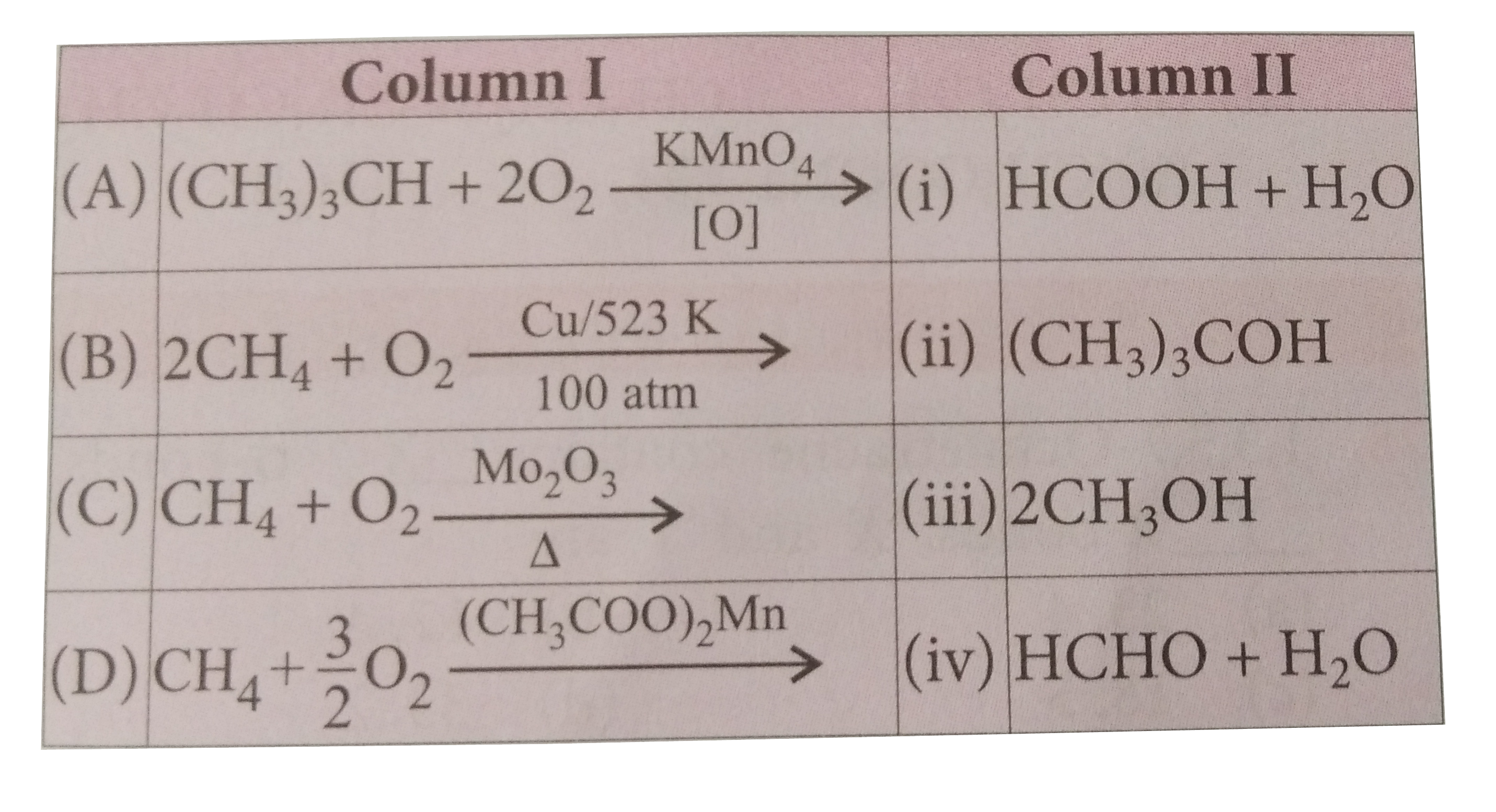Controlled oxidation of alkanes.
Text Solution
Alkanes on heating with a regulated supply of dioxygen or air at high pressure and in the presence of suitable catalyse give a variety of oxidation products.
(i) 2CH4Methane+O2cu573K−−−−→100 atm.2CH3OHMethanol ...(i)
(ii) CH4+O2Mn2O3,Δ−−−−−−→HCHOMethanol+H2O ...(ii)
(iii) 3CH3CH3Ethane+3O2(CH3COO)2Mn−−−−−−−−−−→Δ2Ethanoic acidCH3COOH+2H2O ...(iii)
(iv) Ordinarily alkanes resist oxidation but alkanes having tertiary H atom can be oxidized to corresponding alcohols by potassium permanganate.
(CH3)3CH2-MethylpropaneKMnO4−−−−→+(O)(CH3)3C−OH2Methylpropane-2-ol ..(iv)
|
Topper's Solved these Questions
- HYDROCARBONSBOOK - KUMAR PRAKASHANCHAPTER - HYDROCARBONSEXERCISE - SECTION - A
55 Videos
- HYDROCARBONSBOOK - KUMAR PRAKASHANCHAPTER - HYDROCARBONSEXERCISE - Section - B objective questions (short questions)
147 Videos
- EQUILIBRIUMBOOK - KUMAR PRAKASHANCHAPTER - EQUILIBRIUMEXERCISE - Question Paper from Module
7 Videos
- HYDROGENBOOK - KUMAR PRAKASHANCHAPTER - HYDROGENEXERCISE - Section-D NCERT Exemplar (Long Answer)
8 Videos
Similar Questions
Knowledge Check
Which of the following is correct matching regarding controlled oxidation of alkane and catalyst used in the reaction?
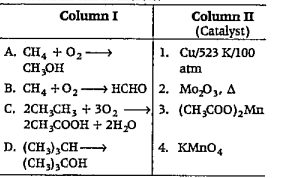 A
A B
B C
C D
D
Which of the following is correct matching regarding controlled oxidation of alkane and catalyst used in the reaction?
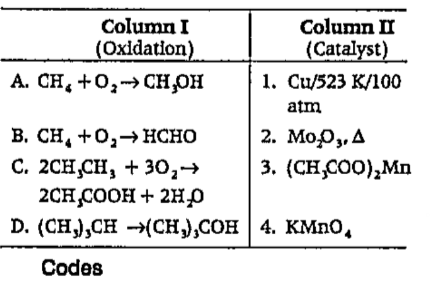 A
A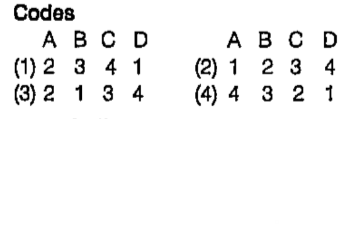 B
B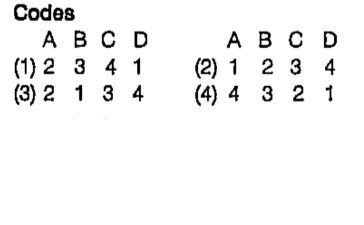 C
C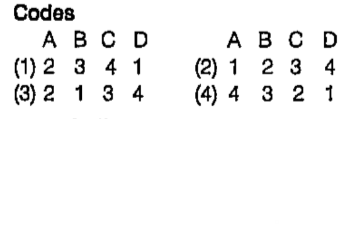 D
D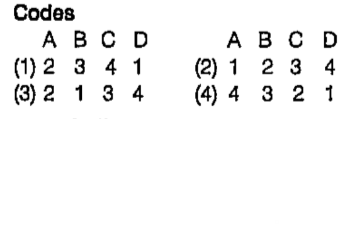
The final product of complete oxidation of alkane is
AAcidBAldehydeCAlcoholDWater and carbon dioxide
Which of the following methods of alkane synthesis involeves the electrochemical oxidation of alkanoate ion?
View SolutionSome oxidation reactions of methane are given below. Which of them is/ are controlled oxidation reactions?
View SolutionSome oxidation reactions of methane are given below. Which of them is/are controlled oxidation reactions?
View SolutionSome oxidation reactions of methane are given below. Which of them is/are controlled oxidation reactions?
View SolutionWhich of the following methods of alkane synthesis involves the electrochemical oxidation of alkanoate ion?
View Solution

